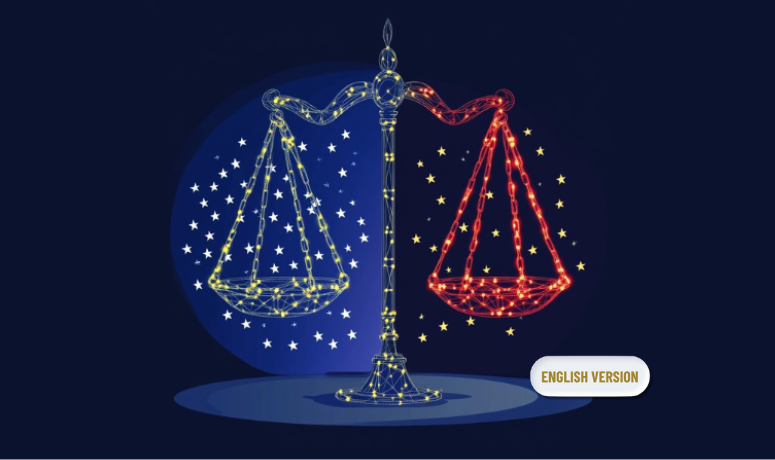Save the Date !
As artificial intelligence continues to transform our world, its regulatory framework is leading to growing debate on both sides of the Atlantic. The United States has adopted a more liberal and, for the time being, less restrictive legal framework, encouraging more innovation and competition, while stimulating technological growth. This approach has enabled major US companies, such as Open AI and Google, to deploy advanced artificial intelligence systems and innovate without encountering major regulatory barriers.
For its part, the European Union has opted for a stricter approach based on regulation and accountability, seeking to ensure the protection of individual rights and the transparency of algorithms. In addition to cross-cutting regulations such as the General Data Protection Regulation, the Artificial Intelligence Act classifies artificial intelligence systems according to their risk level, and imposes specific compliance obligations on developers, deployers and users of artificial intelligence systems.
Although the rise of artificial intelligence raises major ethical, economic, social and geopolitical concerns, and despite their differences, the two continents are united on one fundamental point: the need to adopt ethical and responsible sustainability strategies. These measures are essential not only to maintain public confidence over the long term, but also to ensure that technological innovation is carried out in regards of societal values and universal ethical standards.
By incorporating these principles into their policies, the United States and the European Union can not only positively influence the global development of artificial intelligence, but also build an international regulatory framework that promotes a fair and sustainable digital future for all. For example, American companies have voluntarily set up ethical governance committees to assess the impact of artificial intelligence projects while the European Union requires audits from developers in order to avoid discriminatory bias.
To delve deeper into these crucial issues, we are pleased to invite you to our next webinar entitled “Navigating the Future of AI: A Comparative Discussion on the EU AI Act and US AI Legislation” which will be held on September 26, 2024, from 5:00 p.m. to 6:00 p.m. (CEST).
Will intervene to discuss the different regulatory approaches and the sustainability issues of AI:
- Matt Kohel, partner lawyer – intellectual property – data protection – commercial law
- Anne-Marie Pecoraro, partner lawyer – specialized in intellectual property – media and digital law
- Yacine Ait Kaci, Artistic and strategic director of the ELYX Group
To register, please go to the following link: here.






